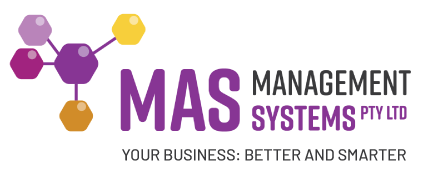Mission critical: staff training for business growth
 Did you know one of your colleagues breeds chickens? And another one fosters dogs? And of course, there’s the one with four school age children.
Did you know one of your colleagues breeds chickens? And another one fosters dogs? And of course, there’s the one with four school age children.
While these are interesting titbits, all these people have skills that help them in the workplace. This includes attention to detail, compassion, negotiating skills and LOTS of patience!
At MAS, we embrace a culture of lifelong learning. This isn’t just about the ongoing learning we do as part of our roles. It’s about encouraging staff to learn new things they can bring to the workplace and use in their everyday lives.
Lifelong learners recognise the need for ongoing education and are motivated to engage in the process. And being active in their own learning process is critical.
As a business, you want employees to see your organisation as a living organism. You want them to see that their knowledge, skills, and involvement are adding to the business and that they’re valuable. What you don’t want is for them to see it as a prepacked unchanging product.
Certainly, your business has a shared identity and a proud legacy. But it’s always an ‘unfinished’ business that needs continuous growth as a way of life.
So how can training help with this?
Develop a training plan
Practices and processes can change rapidly so the knowledge or skills from formal education can quickly become obsolete.
While some of your business processes and procedures will remain the same, knowledge and skills need to be updated. Without training, your capacity to adapt to those rapid industry or workplace changes is diminished.
Training and retaining current staff makes good economic sense and increases business loyalty.
Carrying out a skills analysis to determine what may need to be updated is a good place to begin. Determine your staff member’s current skills using a questionnaire or checklist. Do they have skills you’re not using? Do some of the skills they need for their current role need improving?
This will inform your decision on where they need to be, and you can work together to create a plan.
Keeping it relevant
 Training needs to be relevant and in line with business goals. Understand the learning outcomes you’re trying to obtain for your team and design an effective program from there. You’re more likely to be able to secure funding and buy in if you clearly demonstrate outcomes.
Training needs to be relevant and in line with business goals. Understand the learning outcomes you’re trying to obtain for your team and design an effective program from there. You’re more likely to be able to secure funding and buy in if you clearly demonstrate outcomes.
This also means that individual participants must understand the purpose and value of the training. Otherwise, they could decide it’s irrelevant to their role and not be as involved as they should be.
Try allowing staff to attend seminars and technical meetings related to their areas of expertise. Encourage them to join a relevant professional society, like RACI, ASM. AOQ, AIP, EA, AACB or AIMS. Bringing new insights back to the workplace helps staff members feel as though they’re contributing as well as broadening their knowledge.
Filling in the gaps
Training should also be used to fill skill gaps. Analyse what skills are available, what skills are needed, and which skills are at risk of being lost through resignation or retirement.
Also consider training your staff in skills that may seem outside their immediate role. This will demonstrate your confidence in their abilities and perhaps reflect on a different career path within the business.
Communication and problem-solving skills are very important parts of working in a well-functioning lab. Think about making this part of your induction process and offer ‘refresher’ workshops regularly.
Transfer of skills and knowledge management
Businesses need to promote knowledge transfer back to the lab bench so designing and implementing effective training programs for this process is critical.
You could consider assigning a training mentor who is a go-to resource as well as sharing their own knowledge. This is particularly useful for long term employees or those nearing retirement and allows for an opportunity to capture that corporate knowledge.
Other strategies for skills transfer could include establishment of networks within the organisation to share information and developing a skills bank.
Cross training plans could be part of your risk management strategy.
Mixing it up
 A plan that uses a mix of internal and external learning means you can minimise costs while still bringing in outside perspectives, ideas, and subject matter experts. This combination will help move your business forward.
A plan that uses a mix of internal and external learning means you can minimise costs while still bringing in outside perspectives, ideas, and subject matter experts. This combination will help move your business forward.
Internal training doesn’t need to be formal, PowerPoint driven presentations. It could include integrating topical discussions into normally scheduled staff meetings. For example, you could try having a staff member lead the discussion on a new piece of technology or raise a scenario-based situation. These discussions also promote collaboration and team building skills.
External trainers can provide a mix and match approach, a highly tailored solution for your training needs. The training could be run over several days and incorporate specific learning activities for your staff to meet immediate needs.
The process of learning is as important as the content. Different people have different learning styles and needs. They need to be able to reflect and self-evaluate. This is particularly important for online learning since that’s where a lot of training is currently taking place.
Participants should never feel rushed during the learning process and have plenty of opportunities to ask questions. There’s no value in training that can’t be immediately used back in the lab.
A final word
Two-way communication is the only way to establish a training program that will support and grow your business. Managers need to understand employees, their challenges, and their interests. And employees need to understand where Managers are taking the business and how they help in achieving those goals.
Ongoing training will reward staff and encourage staff retention. And always promote knowledge sharing across the organisation.
Because we recognise that training is critical for staff to perform at their best, we’ve developed a range of training courses to support the needs of businesses and their growth.
As well as being extremely cost effective, our approach to training is very different to other providers.
We use methods or processes from your lab in the training. This means that your staff member will have immediate, actionable learning outcomes as soon as they finish the course.
Plus, we always follow up with participants a couple of weeks after the training, just to be sure they’re still on track.
Call Maree on 0411 540 709 or Diane on 0402 012 781 for a confidential, obligation free discussion about how we can support your training goals.
Remember, you don’t have to do this alone!
Download the article Mission critical training





